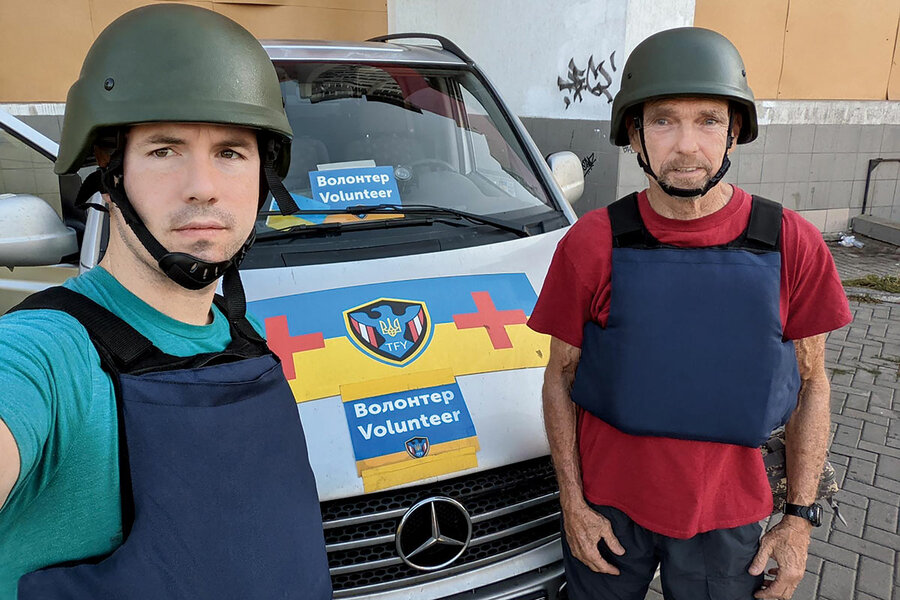Driven to the frontlines by compassion
Loading...
Joshua Curry knew little about Ukraine when Russia invaded.
He just knew he had to get there.
The former Navy flight officer had served in the Persian Gulf and had seen firsthand what military conflict can do to civilian life. “I had to get involved and see what impact I could make,” he says in a telephone interview from Kharkiv, Ukraine. “The Ukrainians didn’t ask for this. They didn’t want this. All they want to do is live their lives.”
That compassion drove him online in search of ways to help. He came across the Task Force Yankee Facebook group, a loosely organized community of veterans and others who also yearned to put their skills to use to aid the people of Ukraine. Soon Mr. Curry became immersed in the mobilization of these volunteers, making several trips to Ukraine himself since the start of the war.
Initially, the group focused on supporting refugees fleeing the country. Mr. Curry arrived in Rzeszów, Poland, just days after the start of the war. Seeing how overcrowded refugee facilities were quickly becoming, Mr. Curry and Task Force Yankee volunteers rented a large house in town and began taking in refugees. He and fellow volunteer Harrison Jozefowicz, an Army veteran and Chicago police officer, worked with an interpreter to help them find jobs and places to go.
As the situation on the ground has changed, both in Poland, where refugee support has become increasingly organized, and in Ukraine, where the battlegrounds have continued to expand, Task Force Yankee has shifted its focus to front-line assistance and civilian support. The group set up a warehouse in Lviv to collect first-aid supplies for delivery to troops. Before long, Task Force Yankee volunteers trained in tactical casualty combat care were flying in to help train Ukrainian troops.
Most recently, Mr. Curry has been in Kharkiv delivering bags of food to families in need. Community groups including the local Rotary Club help to identify where civilians are living in – or more likely, beneath – bombed out buildings.
The day before our phone conversation, he helped deliver 20,000 pounds of food to needy families. He also witnessed a bomb blast that killed five people just a couple hundred feet away. “That’s a daily occurrence here,” he says.
The risks are undeniable. He’s heard stories of volunteers being captured and tortured by Russian forces. Still, he resists the idea that what he is doing is courageous. It’s more a matter of living by his values.
“I knew that if I stood by and did nothing, not just thousands but potentially millions of people would die,” he says. “My morals would not allow me to stand by and let that happen. ... These people deserve some justice.”
That sense of duty and compassion is the heart of Task Force Yankee, whose volunteers not just offer their time and expertise, but put their personal safety at risk as well. The organization also does its own fundraising to cover relief supplies, gas, and rent in Ukraine, but volunteers pay for their own flights and food.
“When you have a family in tears,” Mr. Curry says, “knowing that you’re giving them that push forward that they really need, being able to give them that hope, that’s all I need to keep myself going.”








